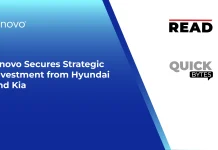Web3.0 social-fi pioneer Bit.Store has achieved a new milestone on its mission to democratize investment with the launch of a DAO-driven investment portfolio. DAO members can opt into a trading algorithm that aggregates investment and trading sentiment of all participating members. Using Bit.Store’s native token, STORE, members can both invest in and cast votes on investment opportunities that are both proposed and decided algorithmically in aggregate through smart contracts.
Also Read: Airwallex to help HubSpot Customers Scale Internationally Through App Accelerator program
From its inception, Bit.Store focused on building a community when it entered a market entirely dominated by platforms that kept their users isolated from one another. The obvious question at the time was, “what if all these users had the opportunity to collaborate?” If millions of users could signal their sentiments and decisions, a public aggregate of that would be an extremely powerful tool for small investors.
Bit.Store began by designing social functions to allow investors to support one another and share knowledge, while safely and easily participating in the crypto investment market.
This is how Bit.Store became the first investment DAO social-fi model, connecting investors from all over the world so that users can share trading information and trading strategies, learning from each other to make trading more efficient and tapping into the wisdom of the crowd. Individual decision-making is enhanced by insight into the sentiments and decision making of the entire community.
In this latest development, each member of the DAO can create their own portfolio as well as join an aggregate portfolio DAO for collaborative investing. DAO members make investment proposals through the DAO, and investment decisions are based on DAO voting results through the STORE utility token. Members of the DAO may have the right to exit positions or terminate their participation in the aggregate portfolio at any point in time.
Trading information shared by each member of the DAO is public and stored in the blockchain. Anyone can access the information to ensure the platform is open and transparent.






